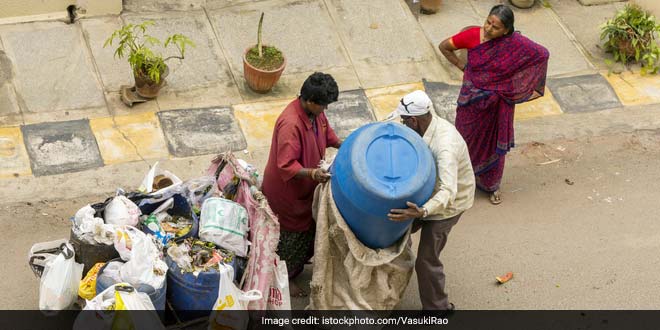Highlights
- Bengaluru generates more than 3,500 tonnes of waste every day
- The 10 waste processing plants are finding it difficult to tackle the waste
- Composted wet waste can be used for various purposes
As we near 3 years of Swachh Bharat Abhiyan’s completion, the focus from eradication of open defecation has now spread to equally potent issues related to sanitation, such as management of solid and liquid waste. While toilets are being built at breakneck speed across rural and urban India, the waste management mechanisms are yet to be properly in place. As most of India remains alien to the concept of waste segregation, civic bodies across the country are coming up with unique ideas to ensure that residential societies and self-help groups become more self-sufficient in segregating and composting waste.
The Bruhat Bengaluru Mahanagara Palike (BBMP), the municipal body in charge of civic duties in Bengaluru, plans to launch a policy from June 2017 that will direct garbage contractors only to collect dry waste from residential or commercial complexes with 20 or more garbage disposal units.
The move, which will be introduced to ease pressure on Bengaluru’s landfills, will also encourage residential and commercial buildings to compost wet waste within their premises. Landfills have been a sore for the civic body, ever since complaints started arising on behalf of residents, of how landfills were piling up with garbage. Repeated complaints from residents had forced the closure of two of Bengaluru’s biggest landfills of Bingipura and Laxmipura in 2015. That had put immense pressure on Bengaluru’s remaining 8 landfills. The daily generation of 3,500 tonnes of waste doesn’t help the city, as 10 processing plants are gradually becoming inadequate in handling such a large quantity of daily waste.
“The waste generated from the city is only increasing every year. Landfills are no longer an option as dumping waste and garbage without segregating them only leads to further pollution of the environment. We are looking to make residential and commercial complexes self-sufficient as far as composting is concerned,” said N Manjunath Prasad, Commissioner, BBMP.
Also Read: Bellandur Lake Tragedy: State Pollution Board Takes Charge In Massive Lake Clean Up
The garbage contractors assigned to collect waste will lift only dry waste from residential and commercial complexes. The compost generated from wet waste can be sold to the BBMP, directly to the farmers or kept for their own use. The civic body is also planning to promote cocopeat, a natural fibre made out of coconut husks, which can assist in vermi composting. Cocopeat assists in composting naturally and does not require any advanced mechanism.
“We have planned for our zonal officers to go to residences in the city and encourage people to start composting. They can sell the compost at a reasonable price, and help the environment during the whole cycle of composting,” said Mr. Prasad.




























